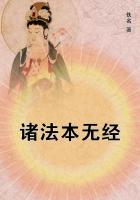A Gothic cathedral affirms that it was done by us, and not done by us. Surely it was by man, but we find it not in our man. But we apply ourselves to the history of its production. We put ourselves into the place and state of the builder. We remember the forest-dwellers, the first temples, the adherence to the first type, and the decoration of it as the wealth of the nation increased; the value which is given to wood by carving led to the carving over the whole mountain of stone of a cathedral. When we have gone through this process, and added thereto the Catholic Church, its cross, its music, its processions, its Saints' days and image-worship, we have, as it were, been the man that made the minster; we have seen how it could and must be. We have the sufficient reason.
The difference between men is in their principle of association. Some men classify objects by color and size and other accidents of appearance; others by intrinsic likeness, or by the relation of cause and effect. The progress of the intellect is to the clearer vision of causes, which neglects surface differences. To the poet, to the philosopher, to the saint, all things are friendly and sacred, all events profitable, all days holy, all men divine.
For the eye is fastened on the life, and slights the circumstance.
Every chemical substance, every plant, every animal in its growth, teaches the unity of cause, the variety of appearance.
Upborne and surrounded as we are by this all-creating nature, soft and fluid as a cloud or the air, why should we be such hard pedants, and magnify a few forms? Why should we make account of time, or of magnitude, or of figure? The soul knows them not, and genius, obeying its law, knows how to play with them as a young child plays with graybeards and in churches. Genius studies the causal thought, and, far back in the womb of things, sees the rays parting from one orb, that diverge ere they fall by infinite diameters.
Genius watches the monad through all his masks as he performs the metempsychosis of nature. Genius detects through the fly, through the caterpillar, through the grub, through the egg, the constant individual; through countless individuals, the fixed species; through many species, the genus; through all genera, the steadfast type; through all the kingdoms of organized life, the eternal unity.
Nature is a mutable cloud, which is always and never the same. She casts the same thought into troops of forms, as a poet makes twenty fables with one moral. Through the bruteness and toughness of matter, a subtle spirit bends all things to its own will. The adamant streams into soft but precise form before it, and, whilst I look at it, its outline and texture are changed again. Nothing is so fleeting as form; yet never does it quite deny itself. In man we still trace the remains or hints of all that we esteem badges of servitude in the lower races; yet in him they enhance his nobleness and grace; as Io, in Aeschylus, transformed to a cow, offends the imagination; but how changed, when as Isis in Egypt she meets Osiris-Jove, a beautiful woman, with nothing of the metamorphosis left but the lunar horns as the splendid ornament of her brows!
The identity of history is equally intrinsic, the diversity equally obvious. There is at the surface infinite variety of things; at the centre there is simplicity of cause. How many are the acts of one man in which we recognize the same character! Observe the sources of our information in respect to the Greek genius. We have the _civil history_ of that people, as Herodotus, Thucydides, Xenophon, and Plutarch have given it; a very sufficient account of what manner of persons they were, and what they did. We have the same national mind expressed for us again in their _literature_, in epic and lyric poems, drama, and philosophy; a very complete form.
Then we have it once more in their _architecture_, a beauty as of temperance itself, limited to the straight line and the square, -- a builded geometry. Then we have it once again in _sculpture_, the "tongue on the balance of expression," a multitude of forms in the utmost freedom of action, and never transgressing the ideal serenity; like votaries performing some religious dance before the gods, and, though in convulsive pain or mortal combat, never daring to break the figure and decorum of their dance. Thus, of the genius of one remarkable people, we have a fourfold representation: and to the senses what more unlike than an ode of Pindar, a marble centaur, the peristyle of the Parthenon, and the last actions of Phocion?
Every one must have observed faces and forms which, without any resembling feature, make a like impression on the beholder. A particular picture or copy of verses, if it do not awaken the same train of images, will yet superinduce the same sentiment as some wild mountain walk, although the resemblance is nowise obvious to the senses, but is occult and out of the reach of the understanding.
Nature is an endless combination and repetition of a very few laws.
She hums the old well-known air through innumerable variations.
Nature is full of a sublime family likeness throughout her works; and delights in startling us with resemblances in the most unexpected quarters. I have seen the head of an old sachem of the forest, which at once reminded the eye of a bald mountain summit, and the furrows of the brow suggested the strata of the rock. There are men whose manners have the same essential splendor as the simple and awful sculpture on the friezes of the Parthenon, and the remains of the earliest Greek art. And there are compositions of the same strain to be found in the books of all ages. What is Guido's Rospigliosi Aurora but a morning thought, as the horses in it are only a morning cloud. If any one will but take pains to observe the variety of actions to which he is equally inclined in certain moods of mind, and those to which he is averse, he will see how deep is the chain of affinity.














